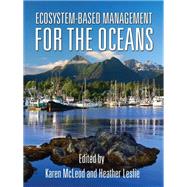
| Forward: Lessons from the Ice Bear | p. xi |
| Preface: A Puget Sound Story | p. xv |
| Acknowledgments | p. xxi |
| Setting the Stage | |
| Why Ecosystem-Based Management? | p. 3 |
| What Do Managers Need? | p. 13 |
| Conceptual Basis for Ecosystem-Based Management | |
| The Oceans as Peopled Seascapes | p. 33 |
| Resilience Science | p. 55 |
| Ecological Cross-Scale Interactions | p. 74 |
| Valuing Ecosystem Services | p. 92 |
| Connecting Concepts to Practice | |
| Monitoring and Evaluation | p. 115 |
| Ecosystem Service Trade-offs | p. 129 |
| Integrating Local and Traditional Ecological Knowledge | p. 145 |
| Building the Legal and Institutional Framework | p. 162 |
| Marine Ecosystem-Based Management in Practice | |
| Morro Bay, California, USA | p. 183 |
| Puget Sound, Washington, USA | p. 201 |
| Gulf of California, Mexico | p. 227 |
| Eastern Scotian Shelf, Canada | p. 253 |
| Chesapeake Bay, USA | p. 268 |
| Lessons from National-Level Implementation Across the World | p. 294 |
| State of Practice | p. 314 |
| Looking Ahead | |
| Toward a New Ethic for the Oceans | p. 325 |
| Ways Forward | p. 341 |
| About the Editors | p. 353 |
| Contributor Biographies | p. 355 |
| Index | p. 361 |
| Table of Contents provided by Ingram. All Rights Reserved. |
The New copy of this book will include any supplemental materials advertised. Please check the title of the book to determine if it should include any access cards, study guides, lab manuals, CDs, etc.
The Used, Rental and eBook copies of this book are not guaranteed to include any supplemental materials. Typically, only the book itself is included. This is true even if the title states it includes any access cards, study guides, lab manuals, CDs, etc.